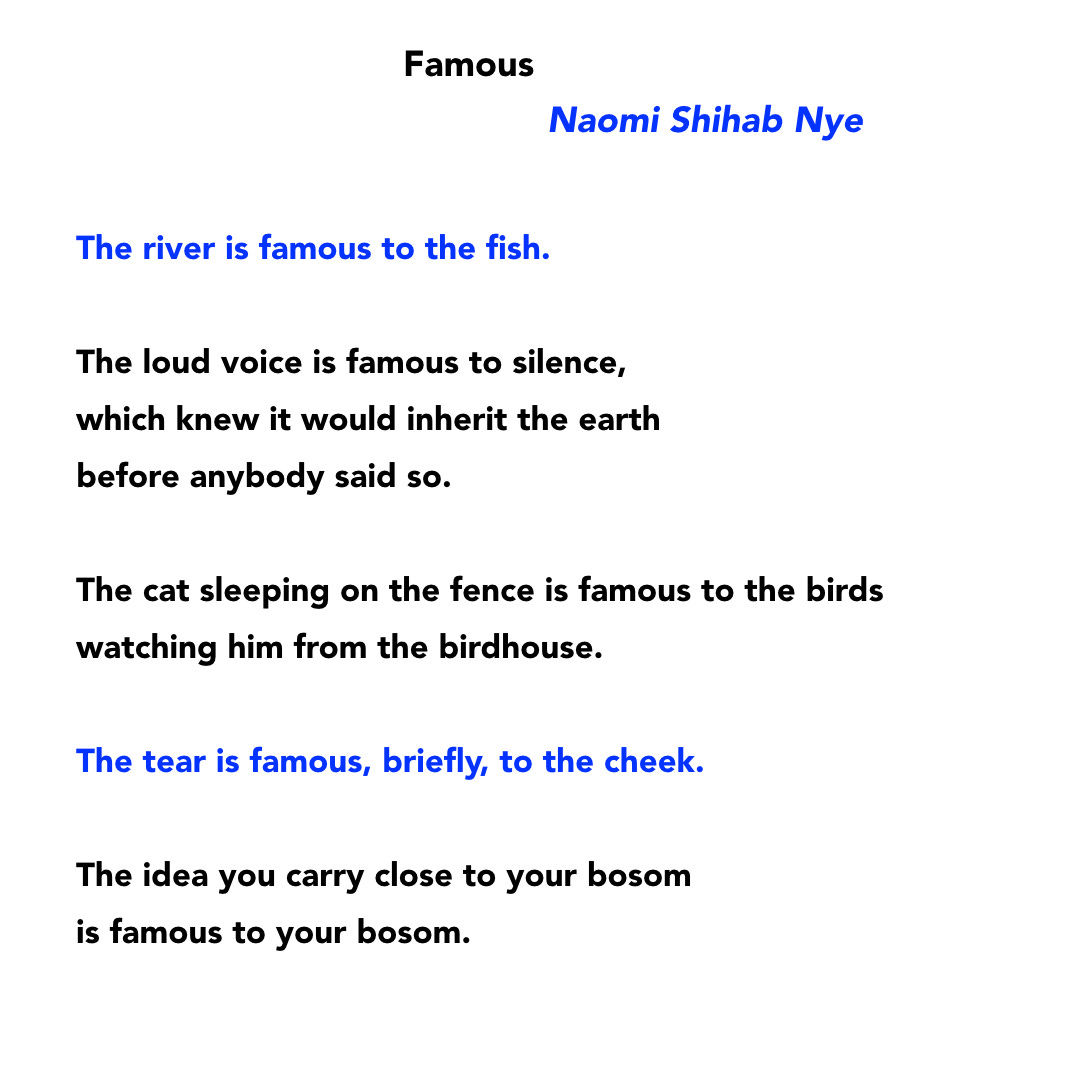It is no secret that Poetly loves Naomi Shihab Nye. At the virtual Poetly reading that took place a few days ago, Nye made an expected entry, as did Wislawa Szymborska, Mallika Amar Sheikh and Eunice DeSouza, and the evening was richer for these strident, wry, perceptive voices of women poets. I met this poem recently and it immediately spoke to me as a poet, and somebody who thinks about the journey of a creative work and the commonality of experience. In the context of such a platform itself, there is also the vision of providing space for those who are precariously placed in the vulnerability of inspired creation, but thrust headlong into the highway of fleeting images and fame as recast in the split-second attention span of the internet and social media as it is today.
What does fame mean for people today? What is, so to say, our circumference of being? How do we view our future selves in the context of who we are today? In a generation that is obsessed by the presentation of self, and self perception, how do we view our journeys in the context of others’? What does it mean to shift the gaze inward? How has comparison changed? Was it always this way? Is it merely the medium that has changed?
Nye’s poem actually reminded me of Wislawa’s poems that jolt us into an awareness of our irrelevance in the scheme of things, and venture towards nurturing a kind of humility.
“We call it a grain of sand,
but it calls itself neither grain nor sand.
It does just fine, without a name,
whether general, particular,
permanent, passing,
incorrect, or apt.”
- View with a grain of sand
“I prefer keeping in mind even the possibility
that existence has its own reason for being.”
- Possibilities
Nye’s poem is fascinating because it reverses the gaze. In her characteristic, everyday, conversational tone she teases out and lovingly puts forward a contentment, and by the end of the poem without being overly dramatic, she questions the tacit assumption of a solipsistic perspective. Sometimes, I think, this truth is what every poet I’ve really loved arrives at.
“not because it did anything spectacular,
but because it never forgot what it could do.”
There it is…. the sublime in the ordinary.


If you like what you see, do share this newsletter with someone who you believe could find in poetry, a companion
Shoutout to Raju Tai, a conversation with whom sparked the discovery of this poem.


